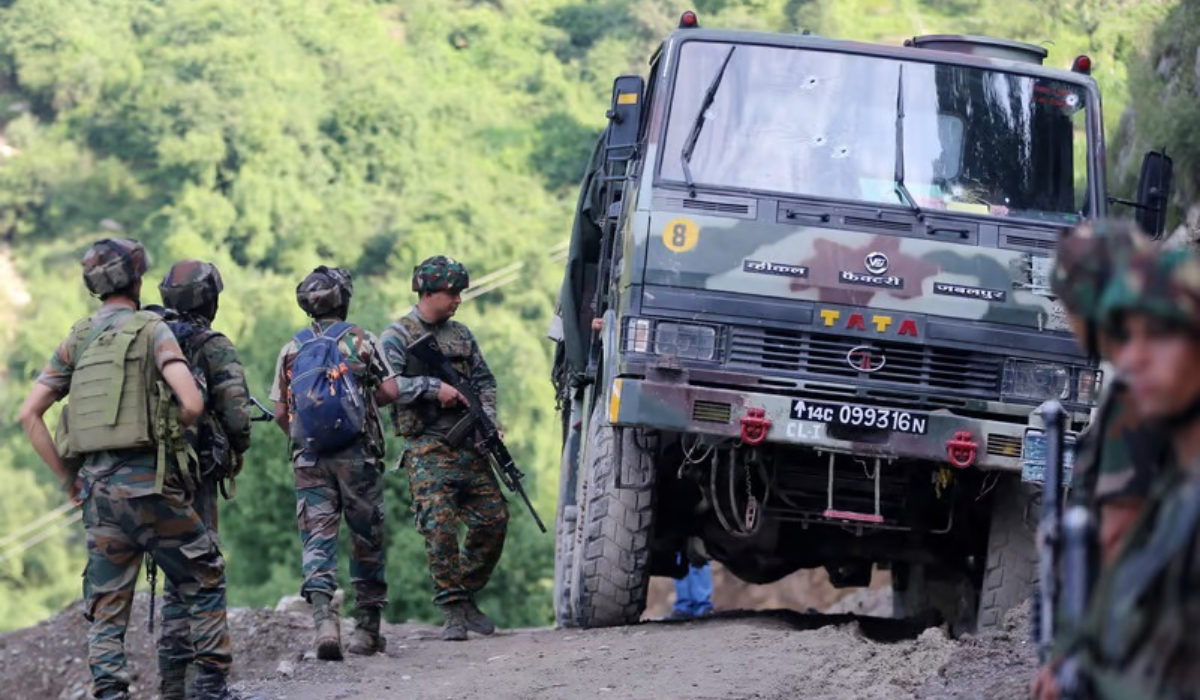On July 8, 2024, Kathua district in Jammu and Kashmir was struck by a devastating terrorist attack targeting an army convoy, resulting in the deaths of five soldiers and injuring four others. This tragic incident occurred shortly after two separate encounters in Kulgam district on the previous day, where six terrorists were killed along with two soldiers while another soldier was wounded.
The recent surge in violence, particularly below the Pir Panjal range in Jammu, has raised significant concerns. In June, the region witnessed a series of attacks. On June 26, in the Gandoh region of Doda district, three terrorists were killed in a confrontation with security forces. Earlier, on June 9, during a major national event, terrorists opened fire on a bus carrying pilgrims in Reasi, resulting in the deaths of at least ten people and injuries to 33 others. These incidents in Reasi, Doda, and Kathua collectively resulted in the deaths of nine civilians and a CRPF personnel, with 49 others, including seven security personnel, sustaining injuries. Additionally, two terrorists were neutralized during the Kathua attack.
Following the Kathua attack, Defence Secretary Giridhar Aramane affirmed India’s determination to seek justice for the fallen soldiers, expressing profound grief over their loss. Defence Minister Rajnath Singh echoed these sentiments, emphasizing the armed forces’ resolve to restore peace in the region. A comprehensive search operation was promptly launched to apprehend the perpetrators responsible for the heinous act in Badnota village, Kathua.
In 2024, Jammu and Kashmir witnessed more than ten terrorist incidents, resulting in casualties among Indian forces and the elimination of several terrorists. The latest attack in Kathua, claimed by the Kashmir Tigers—an outfit associated with Jaish-e-Mohammad—has underscored the ongoing security challenges. India has steadfastly affirmed its commitment to honoring the sacrifices of its soldiers and ensuring that those responsible for such acts of terror face justice.
The broader security dynamics in Jammu and Kashmir underscore the complexities faced by security forces in combating terrorism. The region’s strategic significance, coupled with its volatile socio-political landscape, continues to present challenges in maintaining peace and stability. Ongoing efforts by the central government and local authorities include strengthening security measures, conducting targeted search operations, and bolstering intelligence networks to preempt potential threats.
The government’s strategy also focuses on engaging with local communities to foster cooperation and intelligence sharing. Measures to enhance border security and fortify military installations are integral components of a comprehensive approach aimed at curbing infiltration and neutralizing terrorist elements.
Also Read: Mumbai Rain: City Records 300 Mm Rainfall Overnight, BMC Declares Holiday
Furthermore, diplomatic efforts are underway to address external factors contributing to instability in the region, reinforcing India’s stance on cross-border terrorism and seeking international support for its counter-terrorism efforts.
These concerted efforts by the government and armed forces underscore India’s unwavering resolve to safeguard its territorial integrity, protect civilian lives, and restore lasting peace in Jammu and Kashmir.








